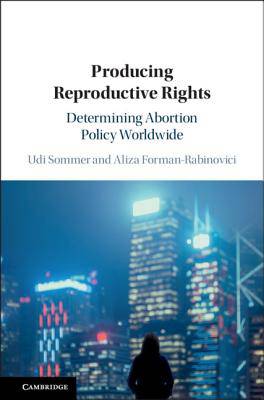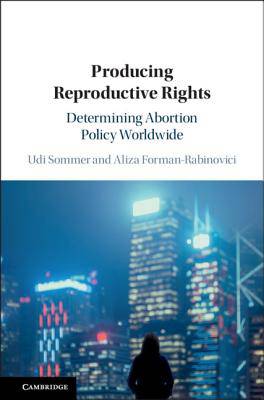
- Afhalen na 1 uur in een winkel met voorraad
- Gratis thuislevering in België vanaf € 30
- Ruim aanbod met 7 miljoen producten
- Afhalen na 1 uur in een winkel met voorraad
- Gratis thuislevering in België vanaf € 30
- Ruim aanbod met 7 miljoen producten
Zoeken
Producing Reproductive Rights
Determining Abortion Policy Worldwide
Udi Sommer, Aliza Forman-Rabinovici
Hardcover | Engels
€ 198,95
+ 397 punten
Uitvoering
Omschrijving
With events and movements such as #MeToo, the Gender Equality UN Sustainable Development Goal, the Irish and Chilean abortion policy changes, and the worldwide Women's March movement, women's rights are at the top of the global public agenda. Yet, countries around the world continue to debate if and how women should have access to reproductive rights, and specifically abortion. This book provides the most comprehensive comparative review of this topic to date. How are reproductive rights produced? This book analyzes three spheres of influence on abortion policymaking: civil society, national government, and international bodies. It engages scholars as well as undergraduate and graduate students in social sciences, law, gender studies, and development and sustainability studies. With insights into the influence of intergovernmental bodies, international health organizations, state-level political representatives, and religious civil society players, this book will be of interest to policymakers, organizations and individuals concerned with influencing reproductive policy.
Specificaties
Betrokkenen
- Auteur(s):
- Uitgeverij:
Inhoud
- Aantal bladzijden:
- 234
- Taal:
- Engels
Eigenschappen
- Productcode (EAN):
- 9781108493161
- Verschijningsdatum:
- 15/08/2019
- Uitvoering:
- Hardcover
- Formaat:
- Genaaid
- Afmetingen:
- 158 mm x 238 mm
- Gewicht:
- 453 g

Alleen bij Standaard Boekhandel
+ 397 punten op je klantenkaart van Standaard Boekhandel
Beoordelingen
We publiceren alleen reviews die voldoen aan de voorwaarden voor reviews. Bekijk onze voorwaarden voor reviews.







